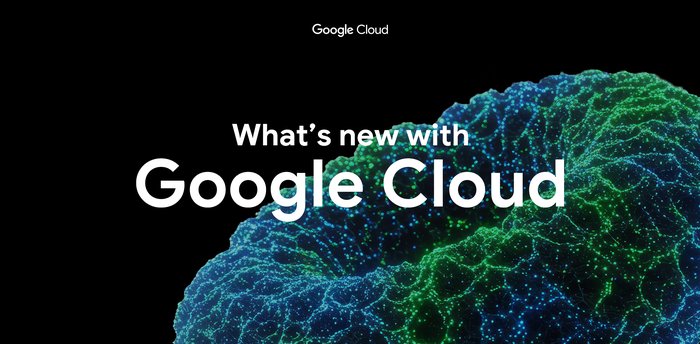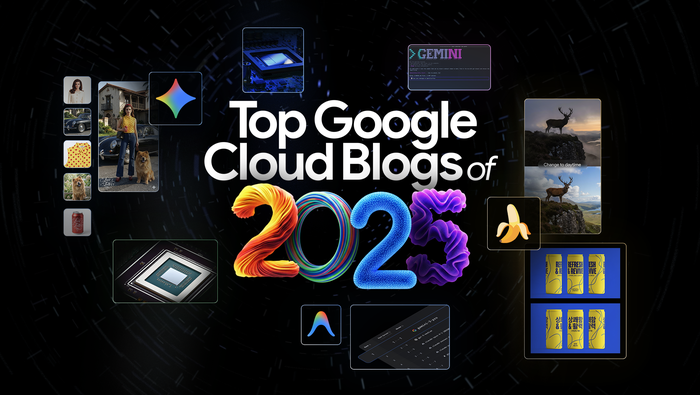Google Cloud for Healthcare: new APIs, customers, partners and security updates

Gregory J. Moore MD, PhD
Vice President Google, Google Cloud Healthcare & Life Sciences, Google Cloud
Google Cloud’s goal for healthcare is very much a reflection of Google’s overall mission: to organize the world’s information and make it universally accessible and useful. Applying this mission to healthcare means using open standards to help enable data sharing and interactive collaboration, while also providing a secure platform. Just imagine if all healthcare providers could easily, securely and instantaneously collaborate while caring for you. Ultimately, we hope that better flow of data will inspire new discoveries with artificial intelligence (AI) and machine learning (ML), leading to insights that improve patient outcomes.
This week at HIMSS we’re showcasing our progress toward serving this mission through our Google Cloud Platform (GCP), G Suite and Chrome solutions, our work with customers and partners, and our focus on compliance and security.
Unlocking data with the new Cloud Healthcare API
We’ve recently launched the new Cloud Healthcare API, which addresses the significant interoperability challenges in healthcare data. The new API provides a robust, scalable infrastructure solution to ingest and manage key healthcare data types—including HL7, FHIR and DICOM—and lets our customers use that data for analytics and machine learning in the cloud.
As part of our early access launch, we’re already working with a group of customers and partners, including the team at the Stanford School of Medicine. Here’s what Somalee Datta, Ph.D., Stanford School of Medicine Director of Research IT, had to say about our work together:
"Open standards are critical to healthcare interoperability as well as for enabling biomedical research. We have been using the Google Cloud Genomics API for a long time and are very excited to see Google Cloud expanding its offerings to include the new Cloud Healthcare API. The ability to combine interoperability with Google Cloud’s scalable analytics will have a transformative impact on our research community."
Our goal with the Cloud Healthcare API is to help transform the healthcare industry through the use of cloud technologies and machine learning. Healthcare is increasingly moving to the cloud, and the adoption of machine learning will allow the industry to unlock insights that can lead to significant clinical improvements for patients. The Cloud Healthcare API is currently available in an early access release, but over the next year, we plan to roll it out to more customers and partners—let us know if you’re interested.
In addition to the the Cloud Healthcare API, we have a long history of supporting open APIs directly on GCP. Our Cloud Genomics API has provided an implementation of the Global Alliance for Genomics & Health APIs for many years now. Through an API-first approach, we can help healthcare enterprises simplify data interoperability by providing a strong foundation with cloud infrastructure and services. For example, Apigee enables healthcare enterprises to manage and deploy FHIR (Fast Healthcare Interoperability Resources) APIs on top of their existing electronic health record systems.
How our healthcare customers are using Google Cloud
Beyond our work on APIs, our approach is to give healthcare customers the tools they need to accelerate projects in areas like population health, personalized medicine and clinical research. At HIMSS we’ll talk in more detail about how our customers are using Google Cloud. Here are a few examples:
M*Modal is working with Google Cloud to reinvent the experience of healthcare and mitigate widespread physician burnout. The collaboration leverages M*Modal’s success in adoption of its physician-assistive, AI-based solutions with Google Cloud’s expertise in AI at scale to align innovation with market needs. M*Modal solutions deliver AI-powered, real-time contextual understanding and more enhanced, actionable insights from clinical data to the doctor directly at the point of care.
Lahey Health is making the move to G Suite for its many benefits, including innovation, scalability, collaboration, security and productivity. From the security perspective, they chose G Suite for our team of dedicated security professionals, malware scanning for early detection of global campaigns, and secure end-to-end infrastructure that has built-in protections across many layers.
The Chilean Health Ministry is using Google Cloud’s Apigee platform to provide a nationwide API-based connectivity to help ensure data, applications and services are easily, yet securely, available when and where needed. This connectivity helps secure access to patient information, regardless of whether it’s needed in one of Chile’s 1,000 remote medical facilities or in one of its connected health centers.
Cleveland Clinic is using Google Cloud’s Apigee platform to realize the full potential of their underlying electronic medical record through FHIR APIs. Using a secure, scalable and industry-grade API platform, Apigee allows Cleveland Clinic to enable, augment and extend functionality of their EHR. It’s also enabling them to run advanced analytics and ML-based predictive models, revealing insights to clinicians that help them deliver improved patient care.
Rush University Medical Center is also using Apigee to enhance many aspects of patient care and patient experience. They're looking to optimize scheduling, identify excess costs, reduce emergency department wait times, reducing readmissions and identifying and predicting cybersecurity threats using Google Cloud's capabilities in AI and ML.
Color is using Variant Transforms—a new open source tool we recently released that helps export genomic variants directly into BigQuery—to discover new capabilities for their cancer diagnostic service. When the Broad Institute of MIT and Harvard first brought the GATK Best Practices pipeline to GCP in 2015, it was $45 to analyze a single genome. Since then, Broad has steadily brought down the cost to a little over $5 by optimizing its use of GCP, while maintaining (and even improving) the quality of the output, and has recently made this same pipeline—at the same cost—available to researchers around the world.
Middlesex Hospital and Chapters Health System are using Chrome to provide a secure, future-proof entry point to the cloud, connecting their staff to data-driven systems so they can focus on what’s most important: delivering great patient care.
How we're working with partners
Partners are essential to the work we do with healthcare customers. Here are a few that we’re talking about at HIMSS:
Flex introduced BrightInsight, a secure, managed services platform running on GCP. BrightInsight aggregates data to deliver real-time intelligence and optimize the value of connected drug, device or combination products. It’s designed to support CE-marked and FDA-regulated medical devices, combination products and Software as a Medical Device requirements for pharmaceutical and medtech companies. Flex is partnering with Google Cloud to deliver insights with customizable analytics dashboards that take advantage of our advanced machine learning and AI capabilities.
Imagia is transforming the way researchers can investigate disease characterization, progression and treatment response.
To address the increased demand for genomics, Kanteron Systems has introduced telegenomics on GCP as an addition to its Precision Medicine Platform.
Client Outlook has integrated their eUnity medical imaging viewer with the new Cloud Healthcare API, enabling them to provide a seamless visualization experience for medical images stored on GCP.
WuXi NextCODE’s massively scalable genomics database management system and clinical and research applications will be available to all Google Cloud users later this year.
Augmedix is using Glass Enterprise Edition along with Google Cloud Compute, Storage and Speech API to power their medical documentation platform. They're working closely with Sutter Health to reduce the amount of time doctors spend on administrative tasks in order to make the healthcare experience more simple, engaging and human for both patients and doctors.
And, on the hardware front, with Chrome solutions and technology partnerships, we’re also announcing a new collaboration between Healthcast, Citrix and Chrome OS that aims to provide a more secure and economical approach to data access. In another example, using VMware’s Digital Clinical Workspace and Point of Care solutions with a Chromebook allows users to securely access sensitive data and apps.
How we’re focusing on security and compliance
We can’t talk about improving healthcare without addressing security and compliance. We’re continuing to expand HIPAA compliance coverage across G Suite and GCP. Today, we announced that Google App Engine and Cloud Machine Learning Engine are covered, joining more than two dozen other HIPAA-compliant GCP services, including Google Compute Engine, Google Cloud Storage and BigQuery.
Come by and say hello at HIMSS
There have been a lot of developments in our work in healthcare over the last year. We’re excited to be back at HIMSS and looking forward to working with everyone there. Stop by our booth and check out our sessions if you’re at HIMSS this week.



